Tankless vs Tank Water Heater: Which is Your Best Option?
If you're deciding on a water heater for your home, you can choose between a tank or a tankless model. To help you make an informed decision, we'll provide a detailed overview of both types, covering cost-efficiency, maintenance, installation, and longevity. Our goal is to provide you with the information you need to decide which option is best for you. Please don't hesitate to contact us if you need further assistance.

What is a storage tank water heater and how does it work?
Storage tank water heaters are a frequently used appliance for in the home. The mechanism involves heating water in a tank, which is then dispersed through a faucet for needed use. Heating elements or burners within the tank raise the water temperature, while insulation prevents heat loss. While tankless water heaters are gaining traction, the tried and true storage tank water heaters remain a dependable and economical option.

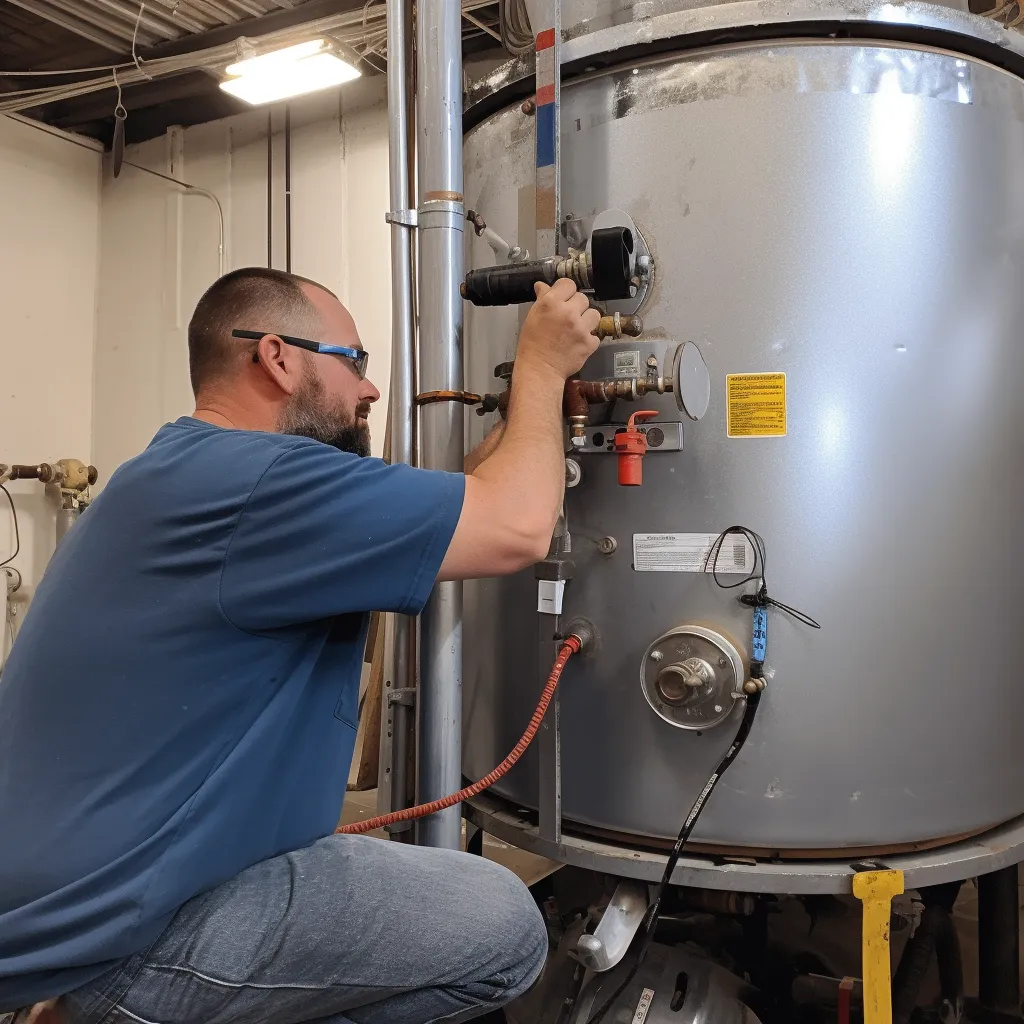
Benefits of a tank water heater
Tank water heaters offer many benefits:
Tank water heaters are a more affordable option compared to tankless models, as they come with lower installation costs.
Having storage capacity is the defining trait of tank water heaters, meaning homeowners can rely on an ongoing and larger supply of hot water.
In terms of reliability, tank water heaters encounter fewer issues in comparison to tankless alternatives.
Another benefit of tank water heaters is their lower maintenance cost, which can save homeowners money on repair expenses in the long run.
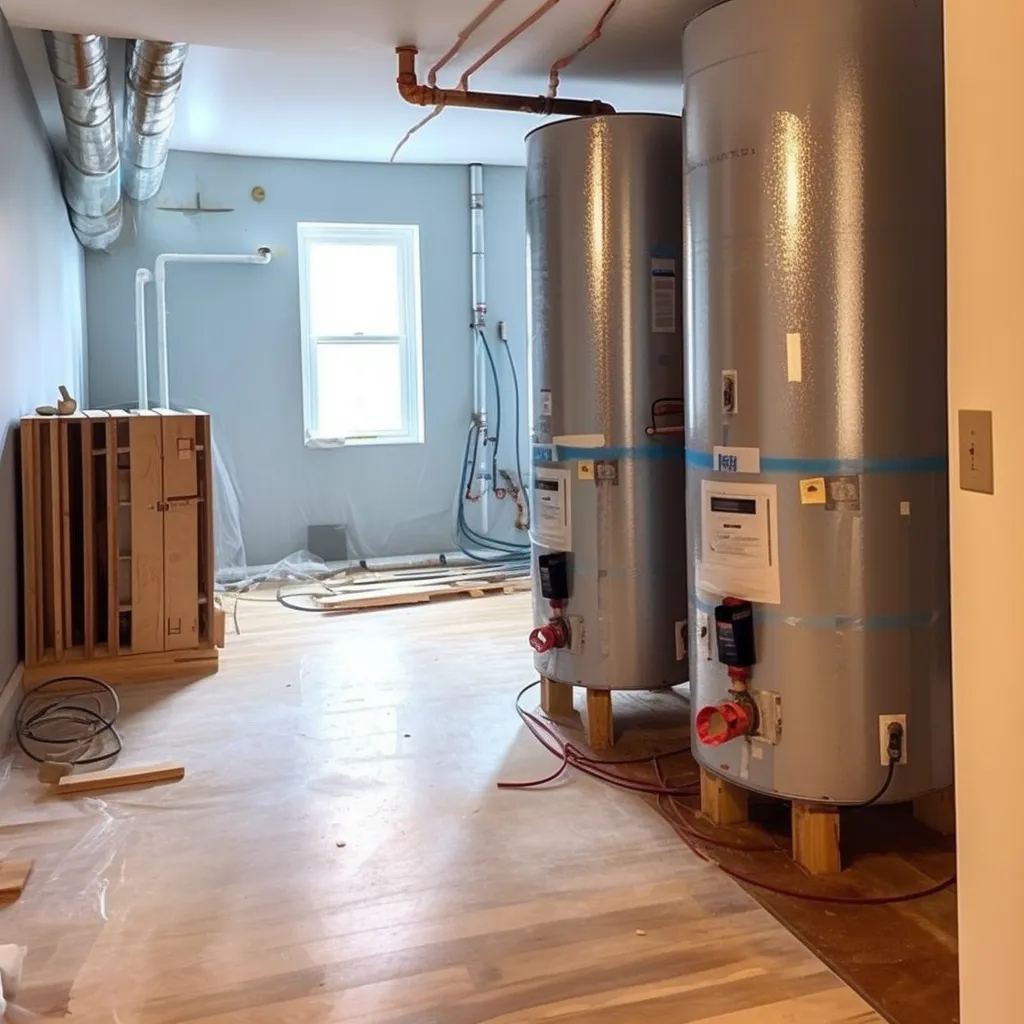
What are the drawbacks of a tank water heater?
Tank water heaters come with several disadvantages:
Space requirements: Tank water heaters take up more space than tankless models, and are not suitable for space-limited homes.
Energy efficiency: Older models of tank water heaters consume more energy, which can lead to heftier utility bills.
Lifespan: Tank water heaters usually last for 8-12 years, while tankless systems have a lifespan of up to 20 years.
Limited hot water supply: Once tank water heaters run out of hot water, it may take several hours to reheat, causing inconvenience for homes with high hot water usage.


What is a tankless water heater and how does it work?
Tankless hot water heaters are a convenient option for having hot water on demand. The units heat water as it flows through them without needing a large storage tank which means you can get hot water in an instant. Here's how they work: When you turn on the hot water, the unit draws in cold water which flows through a heat exchanger, and comes out as hot water from the faucet.

What are the benefits of a tankless water heater?
Tankless water heaters have become a popular choice for homeowners across the country, thanks to their numerous benefits.
Their high energy efficiency reduces utility bills and provides endless hot water supply on demand.
They differ from conventional models by not storing hot water, saving space for homes with limited square footage.
They have a longer lifespan compared to traditional ones, typically lasting 15-20 years.

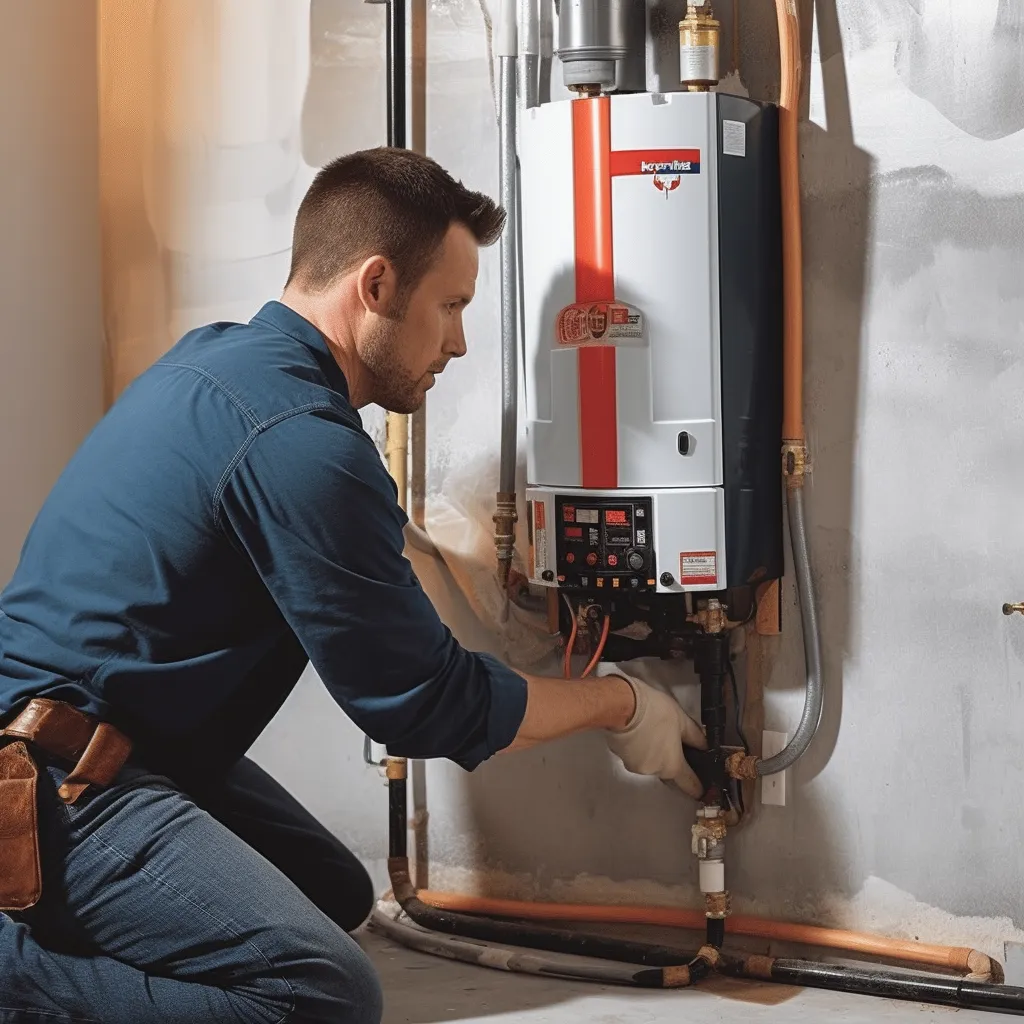
What are the disadvantages of a tankless water heater?
Tankless water heaters come with a few downsides:
Tankless water heaters have a higher initial cost for both the unit and installation.
Their maintenance requirements are more frequent, which can lead to increased expenses over time.
It is important to choose the appropriate unit that can meet your household's hot water needs and ensure the desired level of effectiveness at higher flow rates.
Certain tankless systems may not perform as expected under high demand conditions, and as a result, the temperature could become unpredictable.
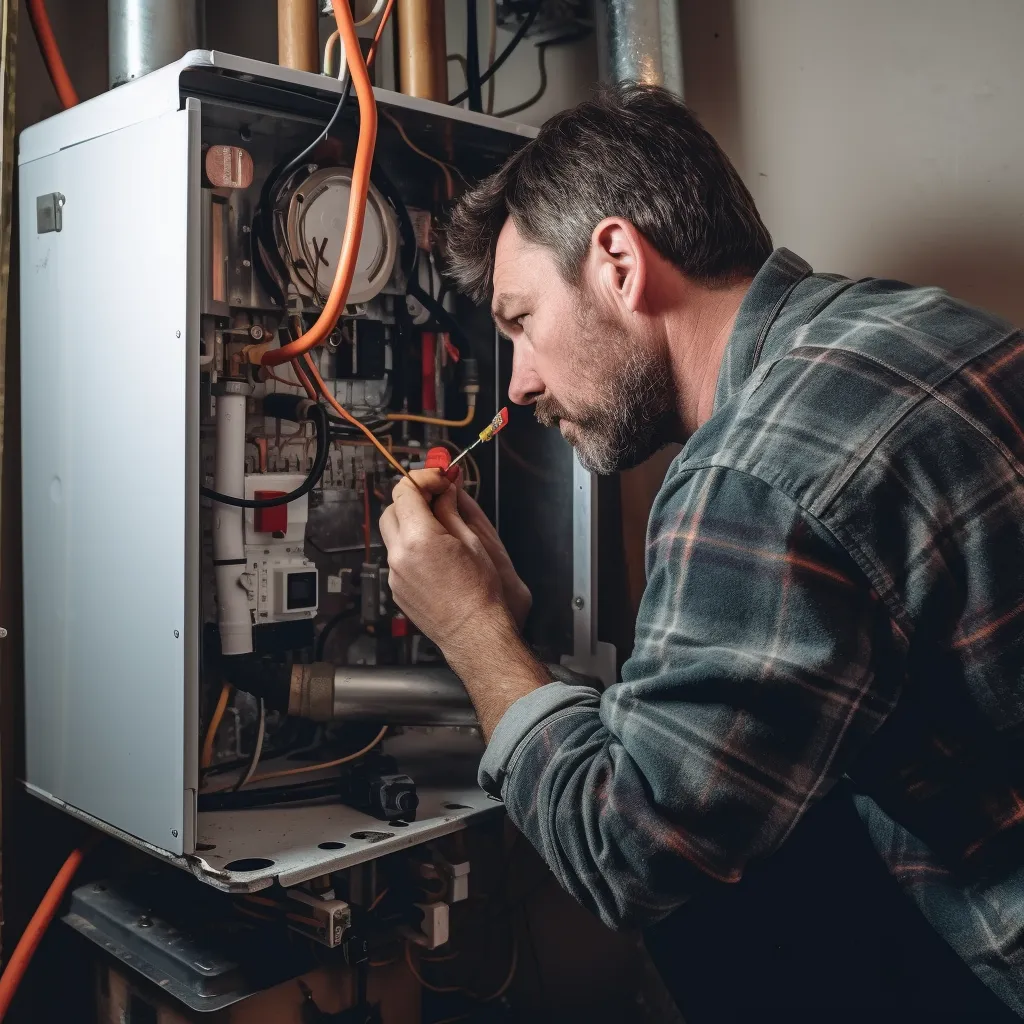
Are storage tank water heaters energy-efficient?
Conventional storage-tank water heaters require a lot of energy and keep heating water unnecessarily, which makes them energy-hogs. But, modern tank-style models feature stellar insulation and heating properties that make them energy-saving appliances. Although they're not the most eco-friendly, they're a trustworthy and practical choice for numerous households.

Are tankless water heaters energy-efficient?
Tankless water heaters have gained popularity due to their affordability and energy-saving features. Research suggests that they are up to 34% more efficient compared to tank-based counterparts. The latter consumes energy to heat a greater amount of water consistently. However, tankless systems heat water only when required, which reduces their energy consumption. These systems also have higher durability than traditional heaters, resulting in long-term energy savings and cost reduction.

Cost to buy and install
a tank water heater
Tank water heaters come in different types and sizes, and they vary in price. Usually, a tank water heater can cost between $500 and $2,000. However, if you opt for fancier models with more features, the cost can increase. In addition to the tank cost, there is also the installation fee. On average, installation costs can be up to $1,500, depending on local labor rates and plumbing conditions. Don't forget to factor in the cost of a dedicated electrical circuit and reliable gas line. Lastly, remember to choose a tank size that meets your household's hot water needs.
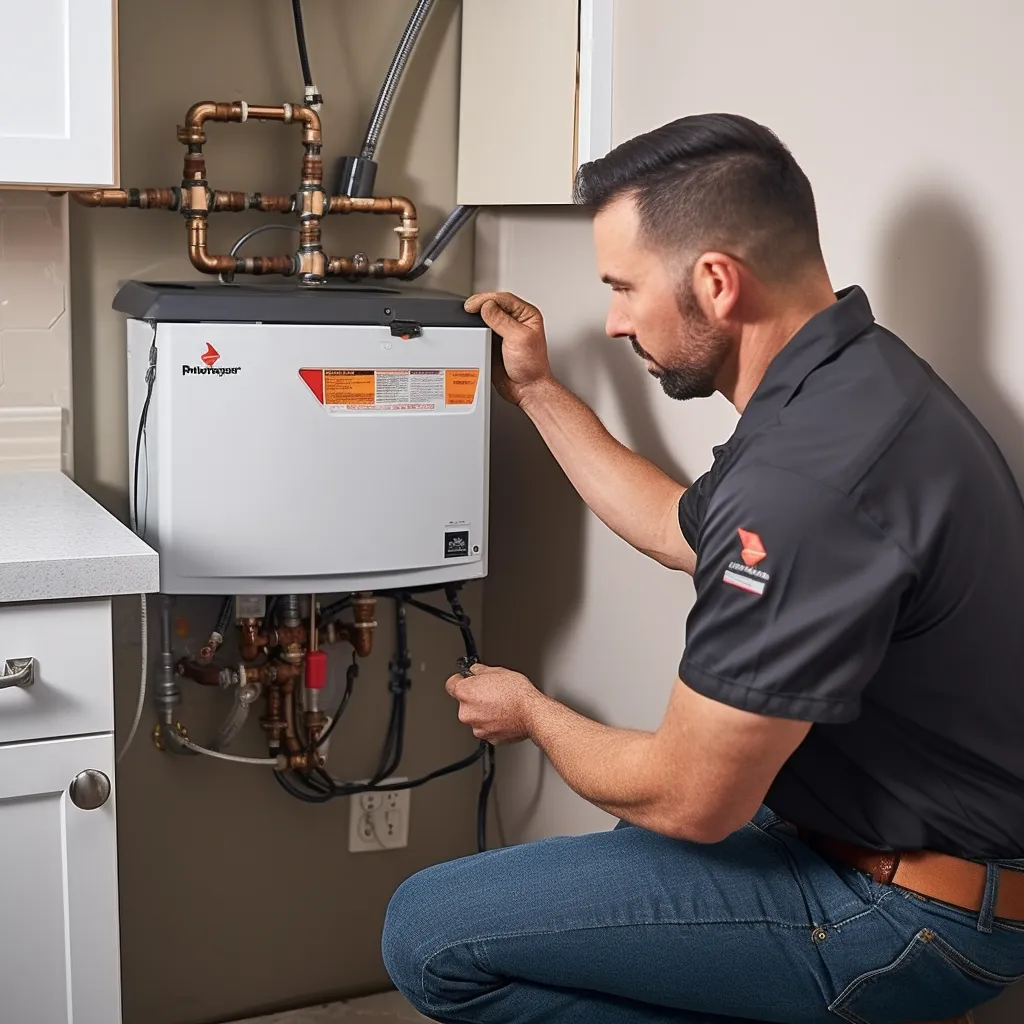
Cost to buy and install
a tankless water heater
Tankless water heaters are pricier than traditional models, ranging from $1,000 to over $3,000. Also, installation costs range from $500 to $2,000, and depend on your home's plumbing system and labor rates in your area. Unlike traditional counterparts, tankless units don't have a storage tank. They operate using a large gas line and an electricity source, making it important to check your home's infrastructure to ensure it can handle the high energy demand. Also, don't forget to choose the unit size that suits your family's hot water requirement.


Common storage tank water heater maintenance issues
Storage tank water heaters have come common maintenance issues:
Leaking tank: Leaks that can cause costly water damage.
Corrosion: Corrosion that reduces system efficiency and requires expensive repairs.
Sediment buildup: Sediment buildup within the tank that can lead to plumbing fixture damage and decreased heating efficiency.
Improper installation: Safety hazards such as gas leaks and electrical shorts when improperly installed.
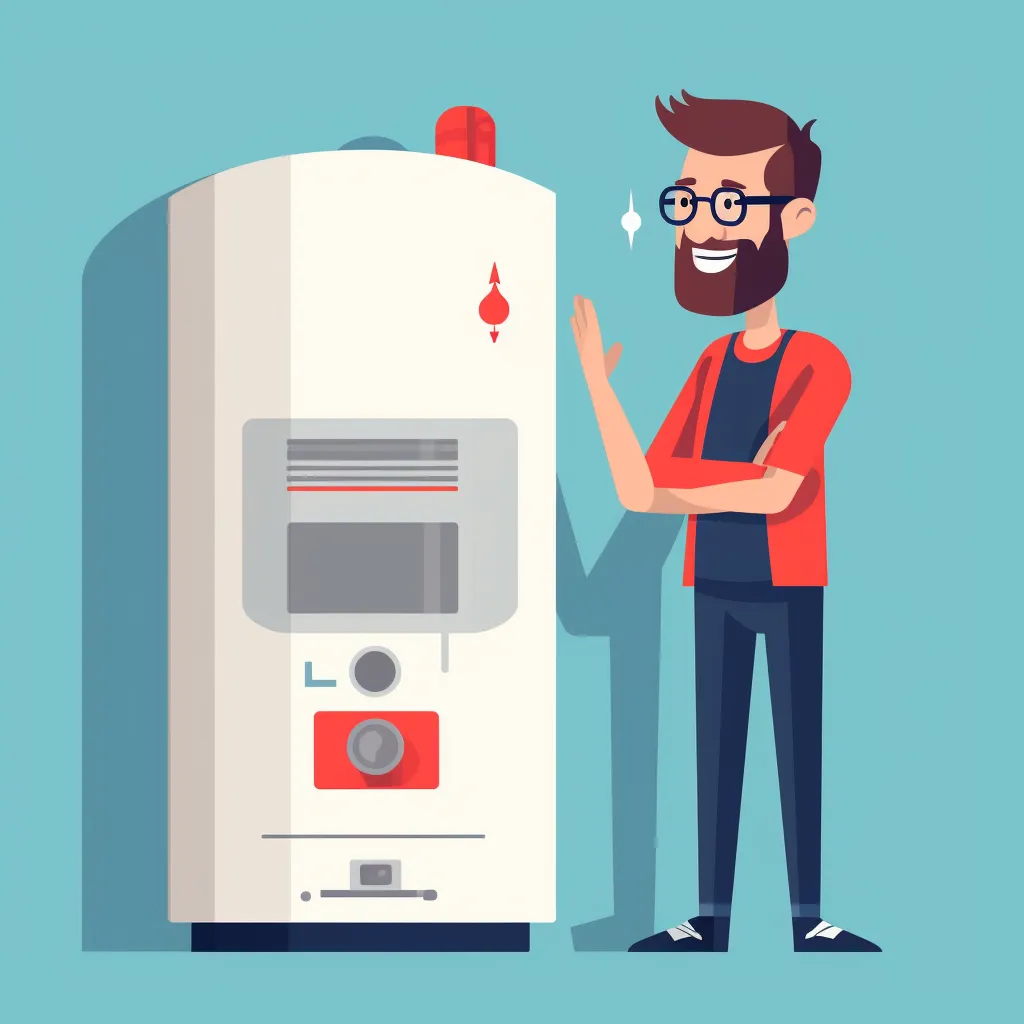
Common tankless water heater maintenance issues
Tankless water heaters have their own maintenance issues:
Tankless water heaters may face maintenance issues such as sediment clogs resulting in inefficiency and damage similar to traditional heaters.
Hard water may lead to scale buildup, reducing performance and lifespan.
Unlike traditional heaters, tankless systems demand additional power, so it is essential to verify if your home can handle it.
The gas line for tankless heaters must be leak-free and secure.
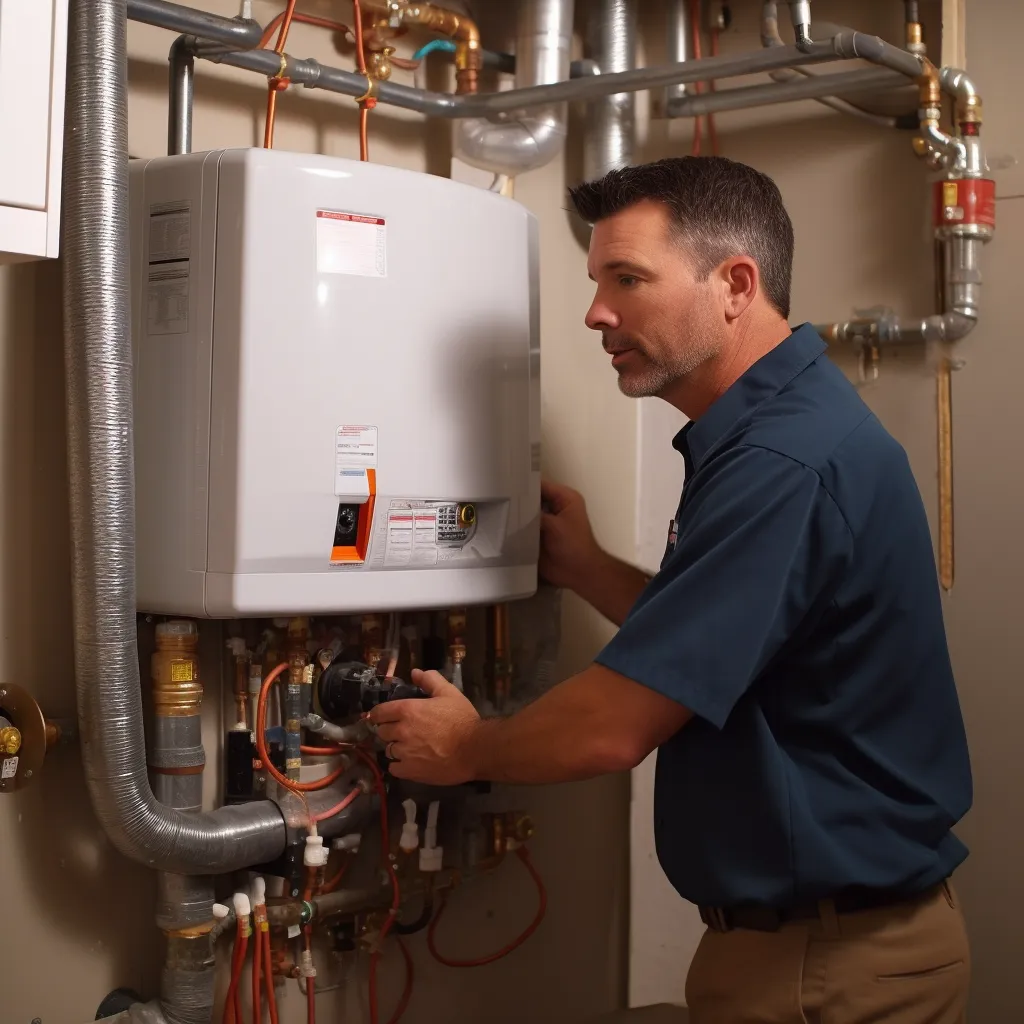
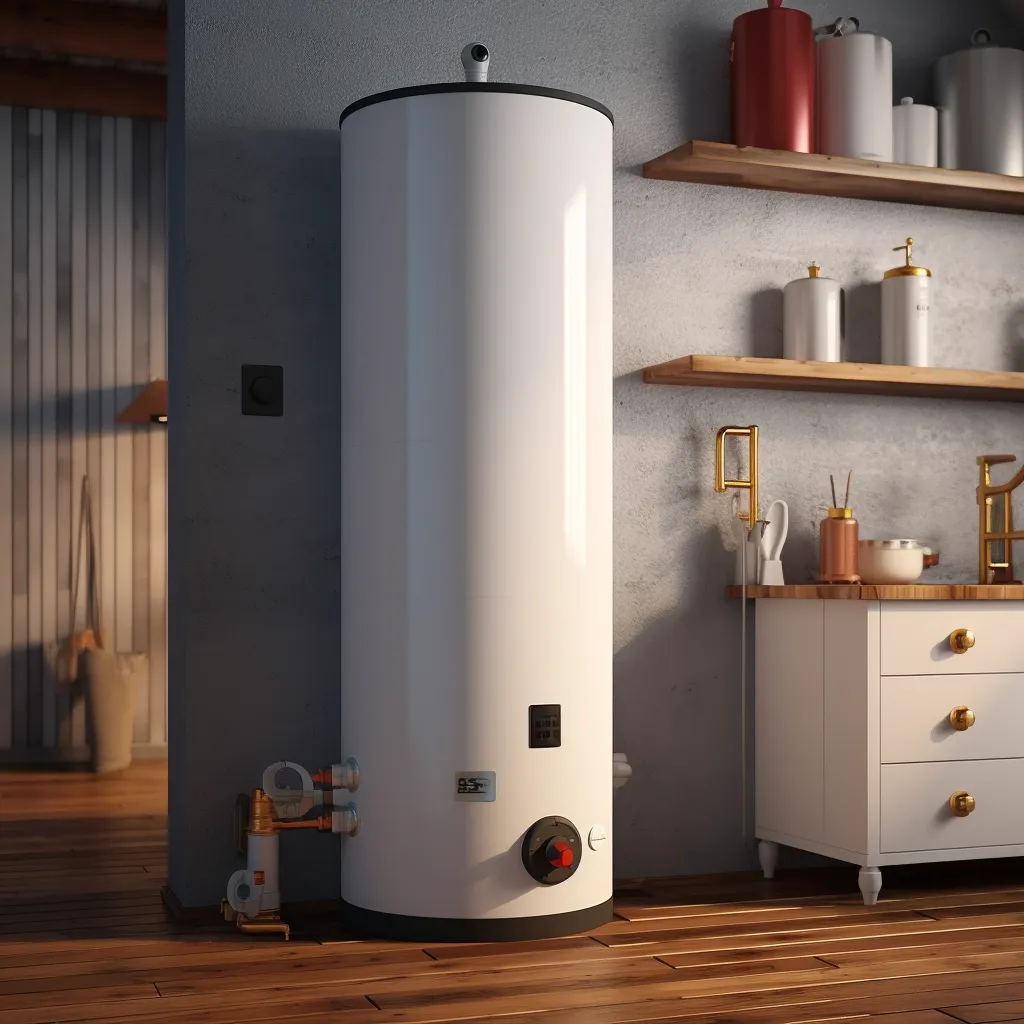
What is the lifespan of a tank water heater?
Typically, tank water heaters last between 8 to 12 years. Various factors, including usage frequency, quality, and maintenance, can impact the ideal lifespan, making it hard to predict. Once you notice signs such as rust-colored water, leaks, lower temperature, or unusual sounds, it could be a warning that your unit is approaching the end of its serviceable life. Contacting an expert for guidance becomes necessary at this outset.
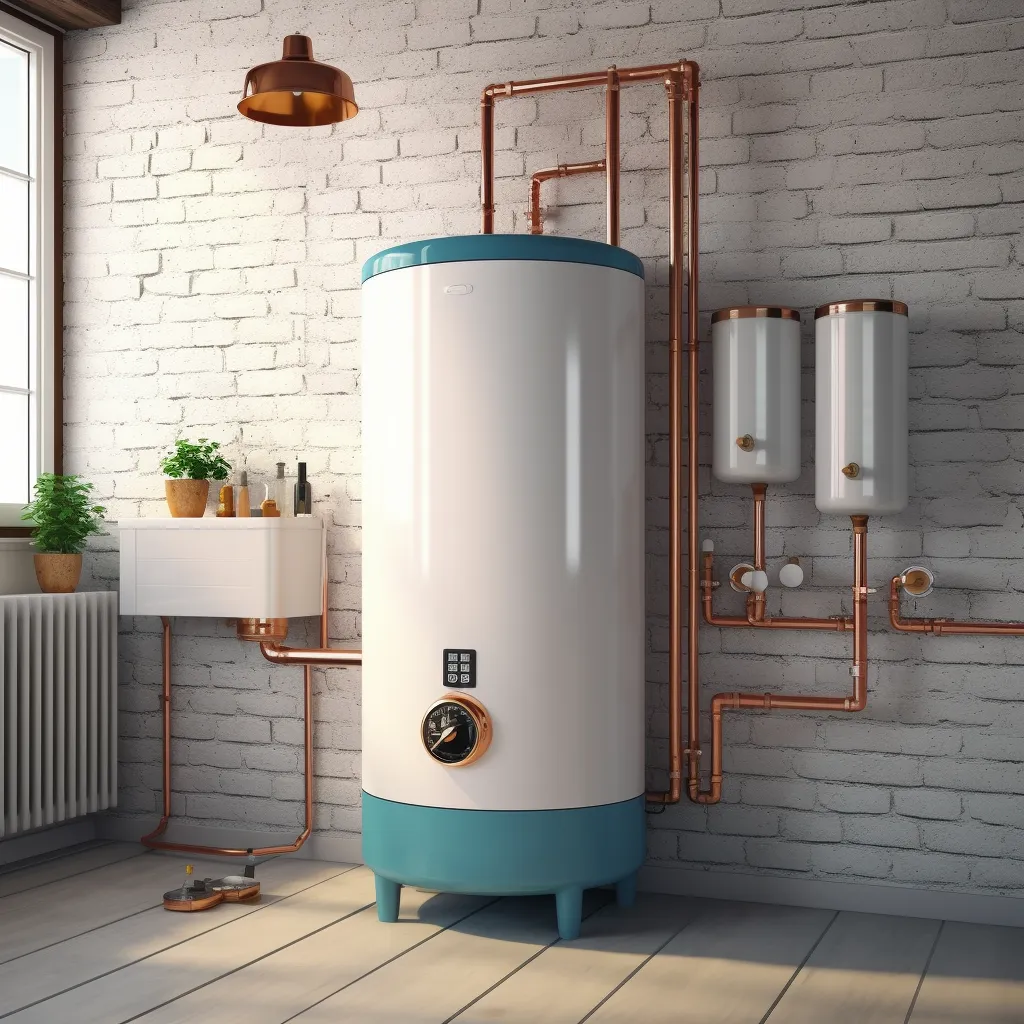
What is the lifespan
of a tankless water heater?
Tankless water heaters are an economical choice for long-term use. They can last up to 15-20 years with proper upkeep. Popular among users, they're expected to continue improving. Beyond immediate benefits, you can enjoy long-term savings and peace of mind.
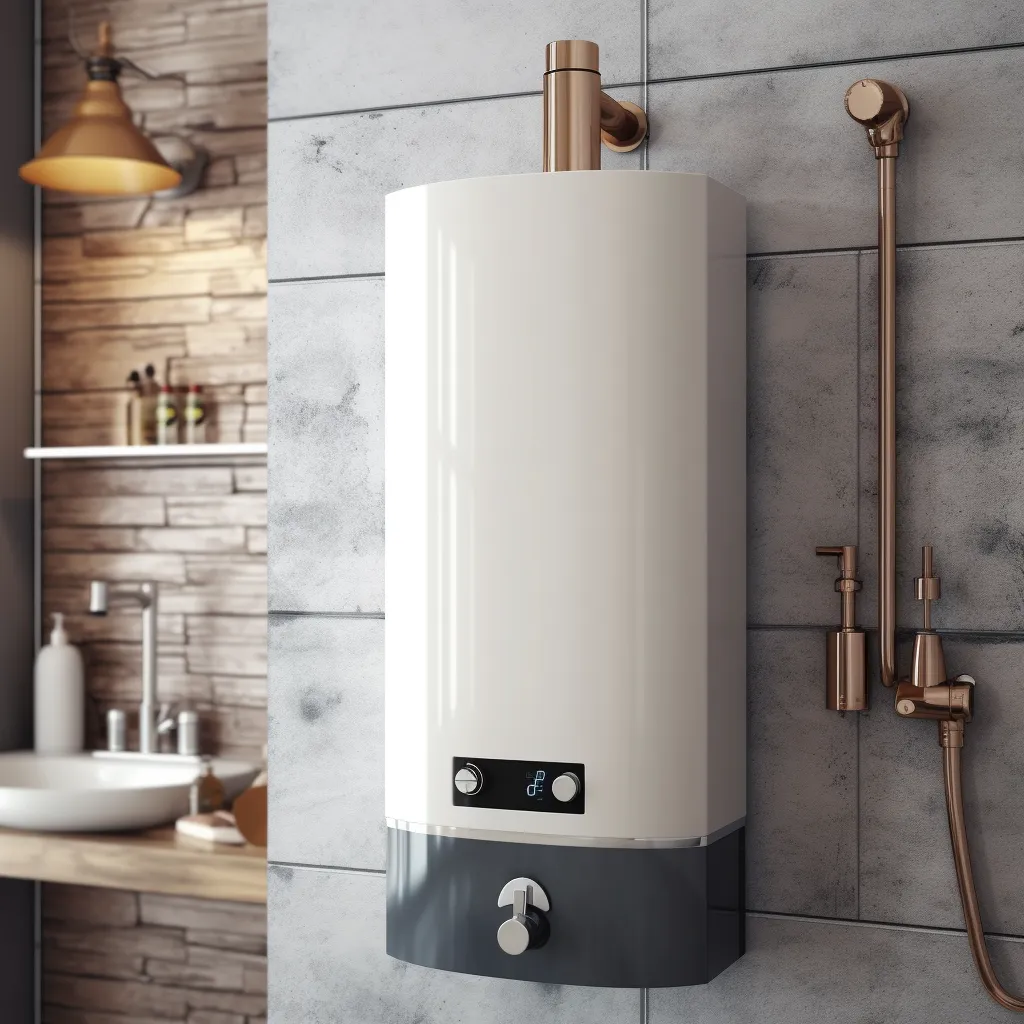

Gas vs electric water heaters
When selecting a water heater for your home, you might be unsure which is best: gas or electric. There are advantages and disadvantages to each that you must weigh. Gas heats water faster, typically has lower operating costs, but demands a gas line and consistent upkeep. Electric heaters are easier to install and maintain, however, their energy costs might be higher and they may take longer to warm water. The decision in the end hinges on your personal needs and preferences.
How to decide whether to buy a tankless
or a tank water heater
Before deciding if a tankless or tank water heater is right for you, there are several factors to consider:

Budget: Keep in mind that tankless water heaters are pricier than traditional tanks, both for purchasing and installation. Don't forget to factor in additional expenses.
Usage requirements: For continuous hot water, a tankless water heater is ideal, offering on-demand and interruption-free hot water. However, if usage is low, a tank water heater may suffice.
Energy efficiency: Compare the energy efficiency of both tankless and tank water heaters to make an informed choice.
Climate: Tankless water heaters are better suited to extreme temperatures, while tanks are more suitable for milder climates.
Space: Tankless water heaters are perfect for space-limited environments as they take up less room than tanks.

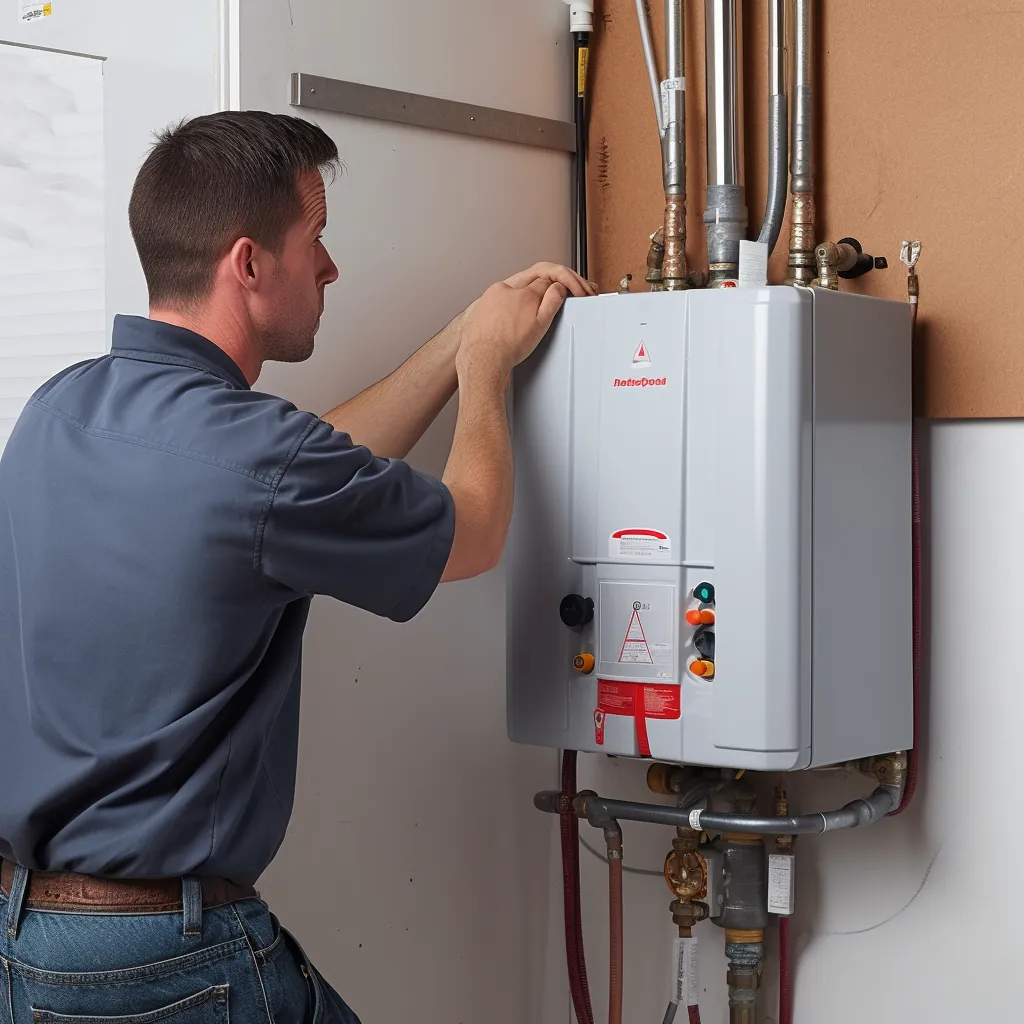
Why it's important to hire a licensed professional to install a new water heater
Proper installation of a new water heater requires the assistance of a licensed professional. Their expertise on the appropriate type and size according to building codes can prevent hazards. Not to mention, the peace of mind that comes with a correctly installed water heater is invaluable.
I

Researching tankless vs tank water heaters
is important
When considering the water heater options for your household, you can choose between a tank or tankless system. Your final selection should depend on a few factors such as your budget, your own hot water needs and the installation prerequisites. It's important to give careful consideration to these before deciding. A new water heater can significantly decrease energy expenses and provide hot water whenever you need it. Be sure to research thoroughly and take note of each unit's energy efficiency rating before making your decision. We wish you success in your decision-making process!

Contact Us
GET IN FULL TOUCH
PHONE:+(803) 784-1514
EMAIL:
julio@waterheaterwestcolumbia.com
Merritt Plumbing & Heating
West Columbia, SC 29171
